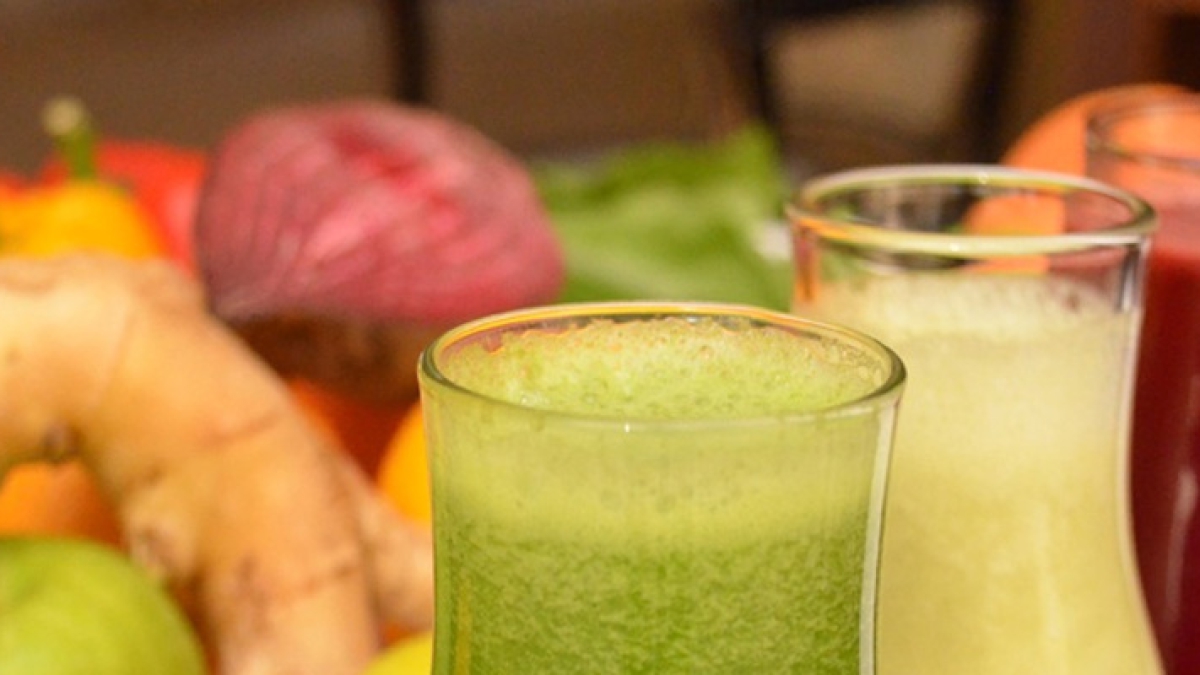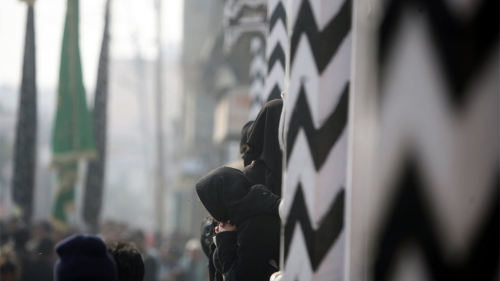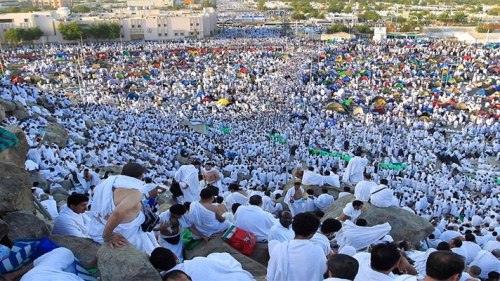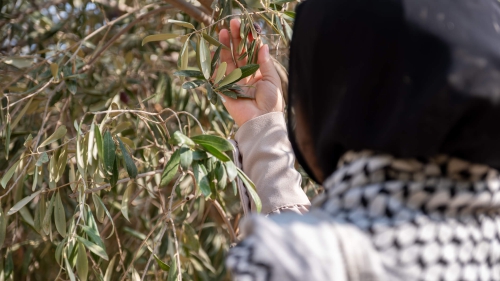Diet during Ramadan

| Conflicting results were observed regarding the effect of dietary fat on blood cholesterol and uric acid levels, which may be due to lack or insufficient consideration of (a) the body-weights of the subjects, and (b) energy intake levels in relation to the requirements. Further, researchers noted that the general guide-line for energy intake through fat - not more than 30 percent of the total, may be appropriate for the general population but not during the Ramadan fasting period or other situations that involve restricted energy intake. Higher intake of fat-energy, around 36 percent of the total intake, which includes poly-unsaturated fat may prevent elevation of blood cholesterol and uric acid levels and allow better retention of protein in the body. These findings can be applicable among diverse racial, religious or gender groups. They can also apply to other restricted energy intake conditions, such as found among subjects with anorexia nervosa or those following prolonged low-calorie weight-control diet. Int J Ramadan Fasting Res. 1(1):1-6, 1997 |
INTRODUCTION
Ramadan fasting can serve as an excellent research model for the study of human metabolism and behavior. One of the earliest published research findings on Ramadan fasting is from East Pakistan, now Bangladesh, reported by Muazzam and Khaleque (1). During the last twenty years there has been growing realization on the part of many scientists for further research in this area. Recently, a Ramadan fasting model has been used for various metabolic studies, Iraki et al (2), Ayabak et al (3), Husain et al. (4), Malik et al (5), El Ati et al (6), Nomani (7), Nomani et al (8), Sweileh et al (9) and Malhotra eta al (10) and for behavior modification, Afifi (11) Farren and Naidoo (12) and Daradkeh (13).
High blood cholesterol and uric acid have been considered health risk factors in cardiovascular diseases and gout, respectively. Conflicting results have been reported on the effect of dietary fat on changes in blood cholesterol levels, Gurr et al (14) and Kritchevsky (15). In 1979, Nomani et al (16) hypothesized that there is an increase in blood cholesterol levels with either increasing or decreasing level of energy intake in relation to the requirement. The recent findings of Ramadan fasting research, Nomani (7), Nomani et al (8) and Hallak and Nomani (17), confirm the hypothesis and help in resolving the dilemma of conflicting findings. The dietary regulation of blood cholesterol and uric acid levels are not only useful for Muslims but also for others throughout the world, irrespective of religion, race, color, gender or ethnic group.
According to the 1995 dietary guidelines, from the U. S. Department of Agriculture and Department of Health and Human Services (18) - energy from fat should not to be more than 30 percent, a level that is appropriate for the general population; however, this level may be inappropriate during Ramadan fasting or similar restricted energy intake situations. Under restricted energy intake conditions, such as Ramadan fasting, anorexia nervosa, prolonged weight control dieting and low energy intake conditions in underdeveloped or developing countries, there is a need for reassessment.
BLOOD CHOLESTEROL
Body weight
One of the major problems that contributes to conflicting results on the effect of quantity or quality of dietary fat on blood cholesterol level is a failure to examine the effect of dietary fat in relation to body weight or changes in body weight. There is an increase in blood cholesterol levels with increasing or decreasing weight from normal weight levels. Hallak and Nomani (17) noted increased blood cholesterol level with weight loss during the fasting month of Ramadan. Other investigators also noted increased blood cholesterol level with weight loss, Fedail et al. (19), Shoukry (20) and El Arnaoty and Johnson (21). Among non-Muslim American female subjects there was increase in blood cholesterol level with lowering of the body mass-index below 18.5, Nomani et al. (22). During Ramadan, when no significant difference was noticed in blood cholesterol levels, before and after fasting period, there was no significant difference in body weight as well, Maislos, et al (23).
Dietary fat and blood cholesterol level
Another omitted or insufficiently considered factor is statement of the energy intake in relation to the requirement. Under limited energy intake conditions, several studies on rats and humans, which include Muslims and non-Muslims, have indicated beneficial effects of a high fat-diet. In rats when the energy intake was ~70 percent of the requirement, blood cholesterol level was negatively associated with dietary fat energy, Nomani et al (24). In another study from the same laboratory, Forbes et al (25), found no significant difference in blood cholesterol levels of rats on diet with 40 percent of the total energy intake through fat (corn and coconut oils, 1.4:2) as compared to the group consuming 21 percent fat-energy from corn oil. Total energy intake was around 67-75 percent of the requirement. Further, this study indicates that there was significantly higher, p<0.05, nitrogen retention in the body in the high-fat diet group.
In humans, Murray et al (26) reported no significant difference between the mean blood cholesterol levels of Anagamba nomads, consuming 73% of the energy as fat, mainly from milk, and Kanouri sedentary men, both from East-Niger and of the same genetic stock, consuming only 9% of energy as fat. The total energy intake was around 18,00 kcal/day and mean weight of 52.3 kg and 51.4, respectively. Among Americans, Grundy (27) noted that when body weight was kept constant, a diet rich in monounsaturated fatty acids was as effective in lowering plasma cholesterol as was a diet low in fat and high in carbohydrate.
Hallak and Nomani (17) found that during the last two weeks of Ramadan fasting, when the subjects were on high-fat diets (1834 Kcal/day), there was no significant difference in blood cholesterol levels and body weights from beginning and end of this period. In another Ramadan study, when there was no significant change in body weight, Nomani et al. (8) noted change in serum cholesterol level inversely related to fat energy intake (coefficient of correlation, r = - 0.77, p<0.02). In a concave curve-linear model change in total-cholesterol: HDL-cholesterol ratio was the lowest and optimal at 36 percent of the energy from fat, coefficient of determination, r2 = 0.86, p<0.01. In the multiple regression r2 value further improved (0.98) with the inclusion of total energy intake, change in total-cholesterol: HDL-cholesterol = 4118.28 - 6.009 Fat, g/day - 3.077 Energy, Kcal/day. + 0.0007 Energy (Kcal/day)2, p<0.001, Nomani (7). This suggest that fat and total energy level independently affected changes in the ratio. Maislos, et al (23) found that not only was there no significant difference in blood cholesterol level but the HDL-cholesterol profile improved during the fasting period. The dietary records were not available. However, the authors had the impression that the food consumed during Ramadan was of higher fat and carbohydrate content than that consumed during the rest of the year. In a recent study, El Ati et al. (6) showed that during Ramadan fasting the body develops adaptive mechanisms and there is an increased and decreased oxidation of fat and carbohydrate, respectively.
The findings of the above studies have lead to hypothesize that when energy is a limited, increased dietary fat level favors reduced breakdown of body protein, including labile proteins. Low-density lipoprotein (LDL) cholesterol-receptors , which are protein in nature, also may be affected. Thus, high-fat diet contributes in preventing the elevation of blood cholesterol level at restricted energy conditions, including Ramadan fasting. The findings have probable usefulness not only among Muslims observing Ramadan fast but also non-Muslims with anorexia nervosa, hospital in-patient subjects with low-weight or under-weight, populations in under-developed or developing countries, persons on prolonged low-calorie diets in weight-control programs and in many other situations with restricted energy intake conditions.
BLOOD URIC ACID
During Ramadan fasting increased blood uric acid have been observed by Fedail et al (19), El Ati et al (6), Gumaa et al (28), Nomani et al (29) and Al-Hader et al (30) . Nomani et al (29) noted change in blood uric levels negatively related to the changes in body weight, r = 0.52, p<0.05. In other words, increase in blood uric acid level was positively associated with body weight loss. During the last two weeks of Ramadan fasting, blood uric acid level in subjects with high uric acid level was prevented from further rise with the inclusion of high-fat diet, Nomani et al (7). Uric acid is a product of purine metabolism. Dietary-fat may be helpful in preventing the catabolism of these nitrogen containing compounds and protein during the fasting period. El Ati et al (6) noted the uric acid level returned back to normal one month after Ramadan period.
Summary
The findings of Ramadan fasting among Muslims and similar limiting energy intake situations among non-Muslims suggest that a high-fat diet around 36 percent of energy through fat, which includes poly-unsaturated fat, may be beneficial in preventing elevation of blood cholesterol or uric acid level and better retention of protein in the body.
Dr. Mohammad Zafar A. Nomani, is Professor Emeritus, West Virginia University; and recipient of the first King Hassan II award for outstanding research contributions on Ramadan fasting, honored by Hassan II Foundation for Scientific and Medical Research on Ramadan, Casablanca, Morocco, at the First World Congress on Health and Ramadan.
Source: International Journal of Ramadan Fasting Research
The IslamiCity editorial board does not support or oppose the views expressed in this article.
REFERENCES
(1). Daradkeh, T.K. Parasuicide during Ramadan in Jordan. Acta Psychiatrica Scandinavica. 86: 253-254, 1992.
(2). Farren, C. and J. Naidoo. Smoking cessation prorammes argeted at black and minority ethnic communities. British Journal of Cancer. 74(Suppl. XXIX): S78 -S80, 1996.
(3). El Ati, J., C. Beji and J. Danguir. Increased fat oxidation during Ramadan fasting in healthy women: an adaptive mechanism for body-weight maintenance. American Journal of Clinical Nutrition. 62: 302-307, 1995.
(4). Husain R, M.T. Duncan, S.H. Cheah and S.L. Ch'ng. Effects of fasting in Ramadan on tropical Asiatic Moslems. British Journal of Nutrition. 58: 41-48, 1987.
(5). Iraki, L., A. Bogdam, F. Hakkou, N. Amrani, A. Abkari and Y.Touitou. Ramadan diet restrictions modify the circadian time structure in humans. A study on plasma gastrin, insulin, glucose, and calcium and on gastric pH. Journal of Clininical Endocrinology and Metabolism. 82: 1261-73, 1997.
(6). Sulimani, R.A. Ramadan Fasting: Medical aspects in health and in disease. Annals of Saudi Medicine. 2: 637-641, 1991.
(7). Gumaa, K.A., K.Y, Mustafa, N.A. Mahmoud, and A,M, Gader. The effect of fasting in Ramadan. 1. Serum uric acid and lipid concentration. British Journal of Nutrition. 40: 573-80, 1978.
(8). Hallak, M.H. and M.Z.A. Nomani. Body weight loss and changes in blood lipid levels in men on hypocaloric diets during Ramadan fasting. American Journal of Clinical Nutrition. 48:1197-1210, 1988.
(9). Nomani, M.Z.A., S.K. Baloch and I.P. Siddiqui. Change in serum cholesterollevels and dietary vegetable-fat at restricted energy intake condition during Ramadan fasting. International Journal of Science and Technology. 4: 30-36, 1992.
(10). Nomani, M.Z.A. Dietary fat, blood cholesterol and uric acid levels during Ramadan fasting. International Journal of Ramadan Fasting Research. 1: 1-6, 1997. (on Web site)
(11). Kay, R.M. Dietary fiber. J Lipid Res.221-242, 1982.
(12). Rydning, A., A. Nesland and A. Berstad. Influence of fiber on postprandial intragastric juice acidity, pepsin, and bile acids in healthy subjects. Scandavian Journal Gastroenterology. 19: 1039-44, 1984.
(13). Azizi, F. and Siahkolah, B. Ramadan Fasting and Diabetes Mellitus. International Journal of Ramadan Fasting Research. 2: 6-10, 1998.
(14). National Academy of Sciences. Recommended Dietary Allowances, 10th Ed., National Academic Press, Washington, D.C., 1989.
(15). Prentice, A.M., A. Prentice, W.H. Lamb, P.G. Lunn and S.Austin. Metabolic consequences of fasting during Ramadan in pregnant and lactating women. Human Nutrition: Clinical Nutrition. 37C: 283-294, 1983.
(16). Prentice, A.M., W.H. Lamb, A. Prentice and W.A. Coward. The effect of water abstention on milk synthesis in lactating women. Clinical Science. 66: 291-298, 1984.
(17). Malhotra, A., P.H. Scott, J. Scott, H. Gee and B.A. Wharton. Metabolic changes in Asian Muslim pregnant mothers observing Ramadan fast in Britain. British Journal of Nutrition. 61: 663-672, 1989.
(18). Cross J.H., J. Eminson and B.A. Wharton. Ramadan and birth weight at full term in Asian Moslem pregnant women in Birmingham. Arch Dis Child. 65:1053-1056, 1990.
(19). Harrison, G.G. Breast feeding and weaning in a poor urban neighborhood in Cairo, Egypt: Medical beliefs and perceptions. Soc Sci Med. 36(8): 1063-1069, 1993
(20). First DataBank, Nutritionist IV, V 4.1, The Hearst Corporation, San Bruno, CA, 1995.
Topics: Diet, Fasting (Sawm), Food, Health, Ramadan
Views: 187775
Related Suggestions
disppointed. Some occasional useful facts but the author seems to have
used copy/paste from scientific research papers throughout without
much of an effort in translating the results into the common daily
language.
first of all ramadan mubarik...I would like to say thanks for these articles which are really beneficial for us..it gives us alot of knowledge...I was worried about diet in ramadan and today you resolved my this problem..I am so happy because the diet is according to religion and researches as well..I would like to congratulate you people for this website .
thank u
JAZAKALLAH
To some extent, I do agree with the author. However, there is a contradicting point up there. THe Author is surprisingly for and against the idea of having coffee/tea.
I believe for "coffee-lover", it should not be completely removed off your diet, but have a shot or two. I am saying this for a reason.
Id break fast with 3-4 dates, and apprx 700 ML water. (Some might argue its alot and not good to stuff in too much water at one go)
then uponmaghrib prayers, about half an hour later, i'd have little desserts (Malaysian delicacies) and my coffee.
bout 20 mins later, my dinner which is porridge, chicken breast and 2 cups of mixed veges.
Reason i do it this way is that, after 8 rekaah of terawih prayers, i'd head to the gym for an hour, comprising of weight traning and abs.
then, id have plenty of water after workout and during workout as well.
SO, im getting easily 1.5 Litres of water before heading off to bed. then before sahur, about half hour earlier, ill have close ot a litre of water and recite Quran and have my meal (which is similar to what the author has suggested)
Brothes/Sisters, its important that we watch what we eat. Yes, we fast for 14 hours, regardless it doesn't mean that we can simple dip in.
Mix your simple and complex carb source (whole wheat bread and rice)
Decent portion of protein (not too much as could have impact on kidney due to lack of water)
Good fats (surely some saturated fats)
No deep fried food, keep it stir fried instead. No MSG's or too much salt.
Fruits make the best dessert, keep in always.
This are my general opinion, and how i do it at Malaysia where food is plenty but my self control allows me to discipline myself.
salam.
Thanks
Wasalam
Lets also remember the best example to this world our beloved prophet (salla Allahu alaihi wa sallam) when he recommended that we should only consume the third of what our stomaches can handle because "Albitna tudhibo lfitna" meaning piging out makes the brain dense.
The other gaffe is recommending "fruit" after a meal. Fruit has sugar, rice and pasta are carbohydrates. The two don't mix. Food combination is one of the major causes on indigestion, heartburn and excessive stomach acid. Another thing is carbs don't mix with animal protein either. The traditional chicken/rice or meat/rice meals are actually a huge burden on the digestive system because the two foods don't combine. The stomach has to release two types of acid ni enormous amounts to digest the two which end up canceling each other out (ever wonder why you feel giddy and sleepy after a protein and carb meal?). If you want to stay healthy, PLEASE research the information given in this column as most of it is ERRONEOUS and based on OLD school medicine. Please read a book called "The pH Miracle" or visit www.phmiracleliving.com for more information. For a really healthy diet, eat a lot of vegetables, don't mix protein with carbs, avoid simple carbs (white rice, pasta, bread,etc), avoid yeast and yeast products (most breads), do not eat fruit with a meal but rather by itself at least 2 hours before or after a meal. Do not eat too much fruit (it has a lot of sugar, especially bananas, and sugar is SUGAR, natural or processed, they have the same effect inside the body, they both feed microtoxins and cause acid in the blood). If you want to reach your ideal weight, you MUST read this new book which based on groudnbreaking research. Your life witl change forever!
It is my personal experience that the use of Hot liquid such as Milk or Tea/Coffee, at Iftar is also a big help. Heavy intake of COLD beverages or Milkshake at iftar have adverse affect on the body and makes you feel sleepy or tired after that. So, use the cold drinks in moderation. But, try to break your fast with a couple of dates along with a hot cup of milk. This gives extra energy and also helps to quench the thirst.
May Allah accept our fasting and open our minds int he Holy month of fasting....amin!
This article had enlightened our minds a lot especially those who wanted to know about the benefits we could get from fasting specifically with our health..but we should not look fasting as a remedy to our increasing body weight and sizes but as total remedy to our mind body and soul which are in trouble...Sukran..assalamoalykom
a very interesting article. i might want to adopt the diet recommended. btw, i heard tt it's makruh to brush teeth aft zohor. but i dun haf any dalil to support this and still am very confused.
The article:diet during Ramadan states that one should brush their teeth regularly, at night and after sahur. Yet i have heard that it is not recommended to brush the teeth. Allah(SWT) actually preferred the smell from the mouths of his servants and discouraged the brushing of the teeth.
Is this so?
Jazakhallahu Khair and Allah knows best
I LIVED FOR 2 YEARS IN SAUDI ARABIA AT JEDDAH.
I AM NOT A MUSLIM. HOWEVE, I HAVE A RESPECT AND APPRECIATION FOR ISLAM. WHILE THERE I ATTENDED FRIDAY STUDIES AT THE ISLAMIC INSTITUTE.
I WILL ATTEMPT TO IMPLEMENT THIS MENU DURING RAMADAN.
THANK YOU!
E. GRIFFIN
I was surprised reading the article about the diet during Ramadan, there was no mentioning of the eggs at all. Is it dangerous to eat eggs, whether boiled or scrambled, in Ramadan.
Sincerely,
Jamal K Dasuki
ALHAMDU LILLA.ALLAHU MASWALI ALA MUHAMMAD.
I WANT TO E-MAIL SOME OF YOUR SUBJECTS AND ITS DETAIL TO A FRIEND.
BYE.

















